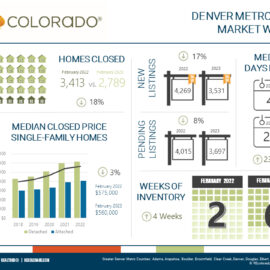
Governor Jared Polis and a team of state Democrats have unveiled an incredibly ambitious effort to boost housing developments throughout the state. The new measure will direct local land-use policy in order to increase residential density and help to address the current housing crisis.
What is in Polis’s Zoning and Land Use New Bill?
The bill, which is expected to be over 100 pages long, will prevent Colorado’s largest cities from limiting construction of accessory-dwelling units, duplexes, and triplexes, and require them to let multifamily units be built near transit centers. This crucial legislation would help to prevent growth caps, and do away with existing ones, and also block limits on how many unrelated people can live in the same home.
What Cities are Impacted?
The policies outlined in the land-use proposal are set to impact Colorado’s most populous cities, including Denver, Aurora, Boulder, Lakewood, Colorado Springs, and Grand Junction, as well as rural communities and resort towns which have faced their own unique housing struggles.
Local Housing is Usually Local
Governor Polis says that these bills represent the most ambitious land-use policy changes in Colorado for approximately 40 years, and it’s been long anticipated by local housing and business experts. These changes may take several years to implement fully, but they’re an essential step towards preventing Colorado from becoming anything like California where homes are even less affordable than they are now.
Despite the incredible potential for the new legislation, local government leaders have been cautious about the proposals because of how it would restrict their power to create and enforce housing policies. However, with the support of Boulder Mayor Aaron Brockett, it’s clear that some local leaders see the incredible value that the new legislation could offer.
There is Push Back
While Republicans in the legislature may push back against the new measures, the Democrats are determined to pass the bill through the House and Senate before the lawmaking term ends this May. The governor’s office and the bill’s sponsors have already met with housing and business experts, local officials, and researched similar policies passed in other states, such as Oregon.
What Types of Properties and Land are Impacted?
Increasing supply, like building new duplexes and townhomes, is one of the key ways that research has shown can lead to more affordable housing solutions. These types of housing are often prohibited in many communities that need them most, which is something that lawmakers are determined to change. The legislation aims to prevent some Colorado communities from erecting barriers to progress while others sprawl out of control, which can cause gentrification and water issues.
Overall, the new measures have massive potential to transform Colorado’s housing landscape and ensure that residents have access to affordable and high-quality housing solutions that will keep pace with the state’s growth. It’s an exciting time for the state, and we can’t wait to see how these changes unfold.
Cities classified as Tier 1
include both the Denver metro area and other cities like Greeley, Fort Collins, Loveland, Windsor, Colorado Springs, Fountain, Grand Junction, and Pueblo. They have a population of at least 1,000 and fall under a metropolitan planning organization with a population greater than 1 million and in a Census Urbanized Area with a population greater than 75,000. The land-use bill would significantly impact Tier 1 cities, prohibiting them from restricting certain types of housing and imposing development guidelines to promote housing density and walkable communities. Tier 1 cities have the option to adopt their own land-use code or meet minimum requirements set by the state. If they fail to meet the minimum standards, they would be required to operate under the state-developed land-use code.
Colorado is set to undergo a major overhaul of its land-use policies, which will affect Tier 1 cities in particular. In this category are cities like Denver, Aurora, Boulder, and many others, which have a population of at least 1,000 and are within a metropolitan planning organization with a population greater than one million, as well as a Census Urbanized Area with a population greater than 75,000. Greeley, Fort Collins, Loveland, Windsor, Colorado Springs, Fountain, Grand Junction and Pueblo are also classified as Tier 1 cities, being defined by having a population greater than 25,000 and being within a metropolitan planning organization with a population less than one million.
The proposed land-use bill that will be implemented in these Tier 1 cities will require them to allow for the construction of multisized housing units such as duplexes, triplexes, and multiplexes of up to six units, as well as accessory-dwelling units like ADUs (granny flats), without any restrictions. Most municipalities within the state of Colorado place restrictions on where and how ADUs can be built. The new bill will also require Tier 1 cities to permit the construction of multifamily housing units near transit centers without any off-street parking requirements.
Furthermore, they will require Tier 1 cities to complete a housing needs plan, which is based on a state housing needs assessment, and engage in long-term planning to stop urban sprawl and address environmental concerns like greenhouse gas emissions, air pollution, and limited water. Lastly, the government will expect Tier 1 cities to implement guidelines that promote housing density and walkable communities along key transit corridors.
These new regulations will be implemented by 2025, and any Tier 1 city that fails to meet the minimum standards of the land-use code will be forced to operate under a statewide land-use code created by the Colorado Department of Local Affairs. The flexible option allows the Tier 1 cities to meet the minimum requirements set by the state and retain their autonomy in land-use code implementation. The state land-use code will be created by the Colorado Department of Local Affairs regulators.
While these new regulations may be seen by some as an infringement on the autonomy of Tier 1 cities when it comes to land-use decisions, they are designed to break down exclusionary zoning policies that have resulted in decreased affordability, limited transit options, and urban sprawl. However, it remains to be seen how these regulations will be accepted and how they will change the landscape of housing in Colorado.
The state of Colorado is considering a series of new regulations that would determine how municipalities across the state can regulate and build housing. The regulations are part of a bill that aims to address the state’s affordable housing shortfall by creating three tiers of municipalities that will have varying levels of regulation around how they can build and zone for housing. The bill is being considered in response to the state’s housing shortage, which has caused rents and home prices to skyrocket for Colorado residents.
Tier 2 Cities
The bill will divide the state’s municipalities into three categories: Tier 1, Tier 2, and non-urban municipalities. Tier 1 cities are defined as cities with a population greater than 25,000 and are located in a metropolitan planning organization that has a population of more than 1.5 million. This category includes cities such as Denver and Colorado Springs. Tier 2 cities include municipalities such as Dacono, Fort Lupton, and Monument, with populations ranging between 5,000 and 25,000 and in a county with a population greater than 250,000. Lastly, non-urban municipalities include any municipality with a population greater than 5,000 that is not in another category.
Each category will have different requirements around the construction and zoning of housing, with Tier 1 cities having the most stringent regulations and non-urban municipalities having the least. Tier 1 cities will be required to zone for duplexes, triplexes, and multiplexes and will not be able to restrict accessory dwelling units (ADUs). They will also need to prepare housing needs plans and a long-term housing and environmental plan. Tier 2 cities will be prohibited from restricting ADUs but will have the ability to block duplexes, triplexes, and multiplexes. They will still be required to prepare housing needs plans and long-term housing and environmental plans. Non-urban municipalities will be prohibited from restricting ADUs but will not have requirements around duplexes, triplexes, and multiplexes or transit-oriented development. They also will not need to prepare a housing needs plan.
The bill includes flexibility for municipalities to choose between a minimum level of housing policies while maintaining some of their own design standards or be forced to adopt a model land-use code that will be created by the state. The bill also requires the municipalities to submit land-use codes that comply with the bill to the state by certain deadlines. Municipalities that do not meet these requirements will have to operate under the state’s model land-use code.
The bill is intended to address Colorado’s affordable housing crisis and spur the creation of more affordable housing units. The state has been struggling with a housing shortage for years, which has resulted in rising rents and home prices that have made it difficult for many residents to find affordable housing. The new regulations aim to encourage the construction of more housing units across the state while preserving the character of each municipality.
Dan Skelly is a real estate broker/owner/agent at Orson Hill Realty in Evergreen CO. Dan is also a Realtor in Southwest Florida on Marco Island and Naples Florida




Pingback:Pros and Cons Of Buying Land and Building a Custom Home in Colorado - Realtor Florida and Colorado - Real Estate Agent